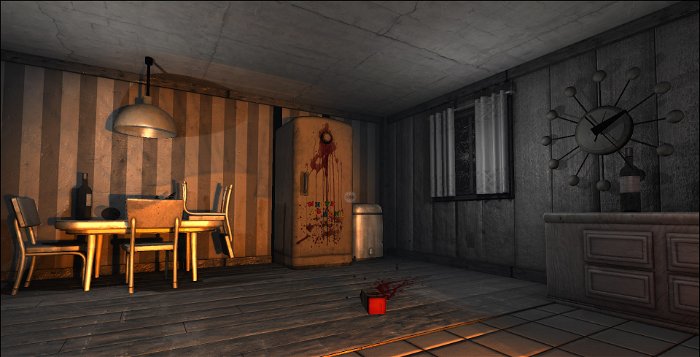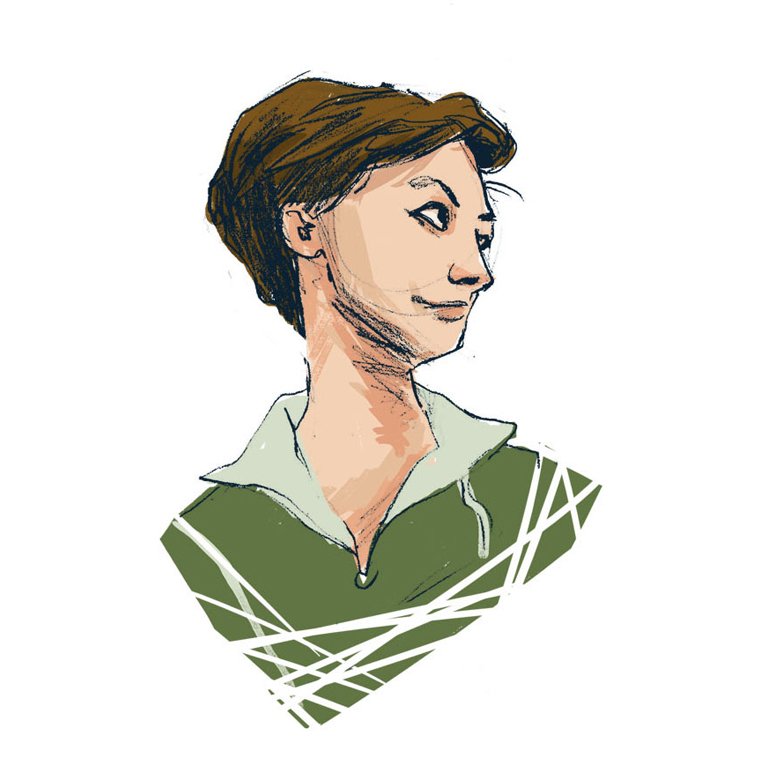
You are lost in the woods. The more you panic, the more your vision tunnels inward. You can see less and less far in front of you, until eventually all you can do is grope at the plant life directly in front of you. You have to calm down or else you will never escape. You stumble forward, hoping to find some clue, some object that might stand as a waypoint. But objects keep repeating themselves: are you going round and round in circles? Or are you seeing the same object twice, three times?
You are in a dark, dirty kitchen at night. Milk pours from a spilled bottle onto the floor. It pours and it pours, pooling around your feet, eventually flooding the room. The more you worry about the spilt milk, the deeper the pool becomes. The deeper the pool, the more your movements are slowed, as you drag your legs through gallons upon gallons of white fluid. You stop and take a few deep breaths, to find that as you calm down, the milk drains away, and you can walk across the room to open the door at last.
Nevermind, by Flying Mollusk, is a horror game that responds to your heart rate, scheduled for release this fall. The more you panic, the worse the situation becomes. The only way out of Nevermind’s puzzles is to breathe, relax, and try to wrest control of your emotions. It might be the most challenging game you play this year.
Buying a separate piece of hardware to measure your heart rate just so that you can play one game seems like a high barrier, but it is well worth the effort to experience Nevermind. I’ve never before encountered a game with this close an understanding of the human mind — not just because it measures and responds to your emotional state, but because its environments and stories reflect a deep familiarity with the things about our world that are truly terrifying.
If, like me, you have ever suffered from anxiety, the sensation of playing Nevermind will be familiar. You know that the problem with which you are faced is entirely within your control, but that only makes it more worrisome. “I have to calm down” you say to yourself, “why can’t I calm down? What’s wrong with me? Why can’t I regain control?” Compound stress is your worst enemy. You have to learn not to worry about worrying.
Although the levels in Nevermind are masterfully designed, the puzzles are not complicated in and of themselves. Most of the time they come down to a hidden object game or a simple maze with arrows telling you which way to turn. If you just look with clear eyes, you can immediately see what you have to do to complete a level. Yet a single problem might take half an hour to resolve, simply because your vision will become more impaired the more your heartrate increases.
This is a game that doesn’t just induce anxiety, but reflects on the nature of anxiety through symbolism. Levels repeat themselves in unsettling, uncanny ways that disorient you and constantly cause you to second-guess yourself. Even in the calmer moments, the environments feel heavy and crushing in a way that very few games achieve.
Nevermind is packed with dramatic moments that I won’t be forgetting in a hurry, as well as some of the most interesting architecture I’ve seen in a long time. Flying Mollusk have created something truly special, and you would be remiss not to experience it for yourself as soon as you get the chance.




